Stay in the know on all smart updates of your favorite topics.
Looking for interview participants for my research
Warm greetings to everyone!
My name is Zuzana and I am doing my bachelor thesis about the impact of civic hacking on government transparency. If you are working for the municipality of Amsterdam or you identify yourself as a civic hacker than I have an interesting offer for you!
What I need from you as a participant:
- You either work for the municipality of Amsterdam or identify yourself as a civic hacker and
you have been involved in a project where the mutual collaboration took place.
- You are willing to do an interview with me and answer questions like how the collaboration itself looked like, what was the input of civic hackers, and in what ways this input helped to achieve effective outcomes, i.e. improve the information exchange between citizens and the municipality.
What you get from me as a participant:
- You will have a chance to share your experience over a nice cup of coffee or tea
- You will help me with my research and eventually contribute to creating more understanding of how the public sector can benefit from collaboration with civic hackers.
In total, I am looking for 10 participants. If you are interested or know someone who can help me, please send me a message on zuzka.kapustikova@gmail.com
I look forward to hearing from you!
Zuzana
Becoming smart? My advise to a mayor
Until recently, no mayor asked me how to become a smart city. Recently, I talked to an audience of mayors and civil servants in Zagreb. When I told them that the first step to become smart is not about technology, their attention was caught. Then I advised them to go through six steps. Does your attention be caught too? Read my post.
You will find a Dutch version here: https://wp.me/p32hqY-1Ll
Praatmiddag emotionele veiligheid in onze maatschappij - stad, maatschappij, middelbare scholen

Een veilige en inclusieve maatschappij waar ieder kind en iedere volwassene zich gezien en gerespecteerd voelt. Dat is de missie van Stichting Challenge Day.
Stichting Challenge Day werkt sinds 2011 in Nederland en België samen met middelbare scholen, sportclubs en organisaties aan een veilige schoolcultuur en een veilig sport- en werkklimaat.
Via onze High Impact workshop van 1 dag reiken we tools aan om op gezonde manieren met emoties om te gaan en verbinding te creëren. Omdat we van mening zijn dat sociaal emotionele ontwikkeling superbelangrijk is voor mensen om stevig in hun schoenen te kunnen staan en een veilige maatschappij te creëren. In de praktijk dragen wij dan ook rechtstreeks bij aan vele onderwijs- en ontwikkelthema’s zoals acceptatie, inclusie, goed burgerschap en het oplossen van vroegtijdige schoolverlating (VSV).
Omdat het niet altijd duidelijk is voor VO scholen en gemeentes dát we hieraan kunnen bijdragen willen wij onze werkwijze en onze missie beter voor het voetlicht brengen. Want wij kunnen het niet alleen. Daarom organiseren wij een voorlichtingsmiddag voor gemeentes en het onderwijs. We nodigen je hiervoor van harte uit op vrijdag 24 mei om 14.00 u op het A-Lab, gelegen aan het IJ achter Centraal station, naast de A’dam (oude Shell) toren in Amsterdam.
Een middag die je zal raken. We gaan het hebben over onze overtuiging dat iedereen recht heeft op veiligheid, liefde en respect. Begrippen waar ieder mens waarde aan hecht. De uitdaging is om dit breed maatschappelijk te bereiken. Graag willen wij het werk van Stichting Challenge Day dan ook tastbaar maken voor een breed publiek. Om samen met zoveel mogelijk anderen deze missie voor elkaar te krijgen.
Om wat meer beeld te krijgen bij de impact van een Challenge Day nodigen we je uit deze video alvast te bekijken op youtube: https://www.youtube.com/watch?v=Tw6aCR6v_Q4
€300,000 available to build Platform for Cycling Innovations & Showcase Amsterdam as a Knowledge Cycling City
Are you . . .
* Passionate about the role that the bicycle plays in keeping Amsterdam and the metropolitan area accessible and livable?
* Playing an active role in sharing this knowledge internationally?
* Experienced with building digital platforms and innovation ecosystems?
If so, the City of Amsterdam and the Vervoerregio (Amsterdam Transport Region) could select your organization as the collaboration partner to support the following goals:
* Develop and share knowledge about cycling
* Stimulate innovation and experimentation in the field of cycling
* Profile Amsterdam nationally and internationally as a knowledge cycling city
* Stimulate bicycle use to achieve these goals
Why?
In its Multi-year Bicycle Plan (MJP), the municipality of Amsterdam profiles itself "nationally and internationally as The Knowledge City in the Field of Cycling.” According to the MJP, the City would like to create more room for experimentation in order to solve Amsterdam’s unique cycling challenges, and testing of innovative bicycle concepts plays an integral role in finding those solutions.
Amsterdam has been building on knowledge development in the field of cycling in a compact city, and the municipality is now taking a deliberate path toward a stronger profile of sharing knowledge and supporting innovation and experimentation. To achieve these goals, the municipality of Amsterdam and Vervoerregio seek support for the following activities:
1. Digital Knowledge & Innovation Platform
Knowledge sharing leads to concrete ideas, projects or initiatives. The winning proposal will need to detail plans for a digital platform which will be in both Dutch and English, through which knowledge and innovations concerning cycling in the Amsterdam region will be bundled and made accessible. It will provide a shared bicycle platform for companies, citizens, academic, municipality, and transport region and social organizations in the field of cycling for the Amsterdam region. The platform will also offer the opportunity to showcase Amsterdam as a cycling city internationally. The platform must be fully transferable, so that it can be managed and further developed by the municipality or third parties at the end of the term of the agreement.
2. Expanded Network in the Field of Cycling
The winning proposal will be charged with setting up, mobilizing, and stimulating a powerful network organization. Through this network, the makers, inventors, implementers and policymakers will share bicycle knowledge and will be empowered and supported to develop innovative ideas in close collaboration with the commissioning parties.
3. Receive Delegations
The Bicycle platform for knowledge sharing, innovation and experiment has a leading role in receiving international delegations, giving and organizing presentations, and arranging excursions for the many delegations that are expected in Amsterdam and throughout the region.
Interested?
Deadline for proposals is May 14 at 14:00 via TenderNed. All relevant documents and information can be found in Dutch via: https://www.tenderned.nl/tenderned-tap/aankondigingen/162544
Good Luck!
The wining proposal will play an important role in strengthening Amsterdam visibility as a cycling city nationally and internationally!
Looking for a job opportunity in the areas of smart cities / digital transformation
I am a Smart Cities Consultant, actively looking for opportunities in the areas of Smart Cities, Digital Transformation, Livable Cities, Sustainable Development, Urban Mobility, ICT/ IoT, Strategy Planning, Project Management, Urban Management, Urban Economic Development, Urban Governance, Feasibility Studies, Technical Research, and Development.
I hold a Masters degree from Germany with specialization in Urban Agglomerations. I would be happy to hear from you pointing out at any leads or opportunities.
Thanks in advance,
Kind Regards,
Anuradha
Proseed

About ProSeed
ProSeed is a vibrant and generously impactful series of meetups, events, and roundtables hosted around the globe in the technology space. It’s currently focusing on the APAC region with meetups in Singapore on 30th May, Hong Kong on 27th June, and Seoul on 25th July.
Who Will be There
ProSeed believes in making things happen with and for those who really matter by connecting, networking, and unwinding together. It’s a movement where startups, investors, thought leaders, media members, and innovators come together to amplify the process of decentralized reordering. It’s time to augment lives. It’s time to proceed.
V4 on the way to Smart Cities

Experts from V4 countries took part in the professional conference; David Bárta presented the National Concept of the Czech Republic in the field of Smart Cities in the form of public service innovations. Polish representative Mateusz Jarosiewicz discussed the possibilities of using Blockchain technology in cities. Milan Ftáčnik introduced the plans of the Smart Solutions and Innovation Council, which was created only a few weeks ago.
Full: https://smartcitiesklub.sk/v4-slovensko-na-ceste-k-smart-cities/
Common play with us!

Tijdens deze ouderwets gezellige spelletjesavond maak je kennis met een aantal bordspellen die niet alleen competitie maar ook samenwerking, ethiek en sociale vraagstukken als thema hebben. Games for Good!
Een goed voorbeeld hiervan is Commonspoly. Het alternatief voor Monopoly, is gelanceerd tijdens ZEMOS98 festival hackcamp in Spanje en daarna doorontwikkeld tijdens Commons Fest in Athene. Het spel is gratis downloadbaar.
Daarnaast zullen we het spel Pandemic spelen, een zogenaamd coöperatief bordspel. Hierbij spelen de spelers mét in plaats van tegen elkaar om een gemeenschappelijk doel te bereiken.
Ook kijken we naar het Digitale Identiteits ganzenbord, waarin je duidelijk wordt gemaakt hoeveel persoonlijke data je dagelijks prijsgeeft aan grote internetplatforms.
Amsterdam Innovation Tour
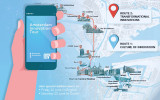
Those with an interest in urban innovation topics can now discover what makes Amsterdam an innovative, smart city without the timing and logistical constraints of a guided tour. The new self-guided Amsterdam Innovation Tour enables local and international stakeholders to immerse themselves in learning about the City’s innovative projects at any time — day or night.
Smart Stedenbouw

In the light of the technologization and digitalization we're going through at the moment, we recognize the need to rethink urban design. Thanks to the internet, we can be anywhere we want. Thus changing the needs of a city's citizens. Additionally, smart city applications in public space raise questions regarding privacy and ownership.
MORGENLAND: The Dutch Approach — Changing the Narrative on Climate Change
Strawberry Fields creative agency has brought addressing climate change to light in a new way with an animated short film, Morgenland (Morrowland). The film takes viewers on a 12-minute positive, inspiring journey about what measures the Dutch can take to have a positive impact on reaching the European Commission’s “Climate Neutral by 2050” goal.
Contrary to many alarmist messages, Morgenland is enjoyable, understandable, and relatable to everyone. It tells a hopeful story while asking every citizen what they can personally do to help. Viewers are asked to make their own unique contributions to combating climate change.
Morgenland creates awareness and lays out the urgency of acting on climate change, however, this is done in a positive manner by spelling out what specific impacts energy transition will have on aspect of our daily lives. The film was strategically produced in an animated folk story style — something that is deeply ingrained in the Dutch culture.
Key points about reaching the 2050 goal are:
- It is necessary to reduce our energy consumption by two-thirds.
- Remaining energy usage has to be produced from sustainable sources such as wind and solar.
- It is important to close down coal-fired power plants immediately.
- Energy transition will engender innovation, and increase employment and export opportunities.
Above all, the film makes it clear that every inhabitant of this country has a role to play in the energy transition. The film concludes with a call to action: "How else can we work on our country of tomorrow?"
Strawberry Fields specializes in sustainable communication. The film and accompanying lessons for every type of education, from primary school to university, are freely accessible in Dutch and English at www.morgenlandfilm.nl.
Een Amsterdamse Energietransitie Situatieschets
The energy transition in Amsterdam is underway. In an attempt to meet national climate related targets, the municipality has set itself a series of targets addressing carbon dioxide emission reduction and the need for fundamental changes in all sectors of society. In order for the transition to be a success, citizens of the metropolitan region must be engaged in the process and are encouraged to contribute by means of ‘bottom-up energy initiatives’. The municipality seeks to stimulate initiatives by providing subsidies and non-financial aid. A variety of obstacles do however stand in the way, preventing a meaningful contribution of these initiatives. In my upcoming blog posts I hope to understand the roles played by these initiatives by taking a closer look at how they are organised and what they need in order to be able to efficiently collaborate with stakeholders such as the municipality. Read on in Dutch.
Hi Amsterdam Smart City community,
Mijn naam is Nicholas en deze maanden loop ik stage bij Amsterdam Smart City. Ik hoop binnen de energietransitie in Amsterdam antwoord te vinden op twee vraagstukken. Ten eerste wil ik beter begrijpen hoe lokale energie-initiatieven (bottom up/bewonersinitiatieven) zich organiseren en hoe ze tot stand zijn gekomen, en ten tweede, wat deze initiatieven nodig hebben om als samenwerkingspartner te kunnen opereren met grote partijen zoals de gemeente. Ik ga jullie meenemen in mijn onderzoek door middel van een reeks van blogposts. Om mijn onderzoek context te geven zal ik in deze post focussen op een situatieschets, gebaseerd op recente ontwikkelingen op het gebied van energietransitie in de stad Amsterdam. Uiteraard ben ik ook benieuwd naar jullie input!
DE ENERGIETRANSITIE IN AMSTERDAM: Om de doelen van de Parijs klimaatconferentie te halen heeft de Nederlandse regering besloten om van het aardgas af te gaan. Dit is een transitie naar een energieneutraal en klimaatvriendelijke samenleving. Gemeenten en andere overheidsinstanties dragen bij aan dit proces door middel van het stellen van specifieke en lokale doelen. Ook in de Gemeente Amsterdam moet er in de komende jaren ontzettend veel gebeuren. Relevant hiervoor zijn de ‘2040 Energy Strategy’, de ‘Routekaart Amsterdam Klimaatneutraal 2050’ en het ‘2018 Amsterdam Coalitieakkoord’ waarin de stad onder andere haar ambitie toont om CO2 uitstoot aanzienlijk te verminderen.
In de ‘2040 Energy Strategy’ zijn drie thema's gepresenteerd, in lijn met de trias energetica. Door een combinatie van energiebesparing, het maximale gebruik van duurzame energiebronnen, en het efficiënte gebruik van fossiele energiebronnen hoopt de gemeente een duurzame toekomst te kunnen garanderen. Onder deze transitiepaden zijn vier sectoren geïdentificeerd waar verandering moet worden geïmplementeerd: gebouwen, haven en industrie, transport en duurzame energie. Soortgelijke ambities zijn vermeld in het Coalitieakkoord van de gemeente en in de ‘Routekaart Amsterdam Klimaatneutraal 2050’. Nieuwbouwprojecten zullen energieneutraal moeten worden gebouwd, daken moeten goed worden benut door de installatie van zonnepanelen, en de kolencentrale aan de Hemweg, zal moeten worden gesloten.
EEN CENTRALE ROL VOOR BEWONERS IN DE ENERGIETRANSITIE: De energietransitie is naar verwachting zo ingrijpend, dat de sociale component in de transitie belangrijker wordt. De impact voor de ‘gewone’ Amsterdammer reikt tot achter de voordeuren dus is het noodzakelijk om mensen zorgvuldig te betrekken, zoals ook vermeld in het Coalitieakkoord’. Lokale energie-initiatieven spelen hier een belangrijke rol en zijn voor gemeenten onmisbaar om de transitie waar te kunnen maken. Anders dan via traditionele rollen als informeren of een subsidieverstrekking, zien we onder meer in Amsterdam ook een andere interactie tussen overheid en de inwoner. Vanuit zelforganisatie ontstaan er lokale initiatieven, waarbij bewoners de mogelijkheid zien om sociale cohesie en samenwerking te kweken in de gemeenschappen en buurten. De gemeente ondersteunt ook deze initiatieven in de vorm van subsidies en niet financiële activiteiten zoals informatieverstrekking. Zo kun je onder de onderwerpen ‘duurzaam en groen’ en ‘wonen en leefomgeving’ gebruik maken van een verscheidenheid aan aantrekkelijke subsidies.
Er zijn veel obstakels die de optimale bijdrage van lokale initiatieven voorkomen. Uit een onderzoek van de Nationale ombudsman blijkt dat gemeenten het lastig vinden om een balans te vinden tussen een vorm van ondersteuning en het geven van zelfstandigheid. Lokale initiatieven passen niet altijd in de bestaande kaders en regels, en er is soms bij ambtenaren onvoldoende bereidheid om hier flexibel en creatief mee om te gaan. Als een lokaal initiatief zich bekend maakt, vragen gemeenten zich nog vaak af wat zij daarmee moeten doen, meldt platform ‘HIER Opgewekt’. Hierdoor gaat de slagkracht verloren en belanden bewonersinitiatieven (of lokale, wat je wil!) vaak in gecompliceerde ambtelijke processen en lange wachtrijen voor hulp.
Door middel van mijn onderzoek en blogposts hoop ik beter te kunnen aankaarten wat lokale energie-initiatieven nodig hebben voor een goede relatie met de gemeente en om voldoende slagkracht te hebben in de energietransitie. In mijn volgende post kijk ik naar de organisatiestructuur van lokale energie-initiatieven.
Ik ben ook benieuwd naar jullie verhalen! Als bewonersinitiatief in de energietransitie, wat denken jullie dat er is nodig om beter te kunnen presteren?
Connect with international delegations!
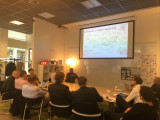
Amsterdam Smart City (ASC) receives many requests from international delegations who are interested in collaborating and exchanging experiences on smart city topics.
We are looking for experts, companies and start-ups in our community who would like to share their knowledge, expertise and services with visiting delegations. Are you interested?
**Amsterdam Smart City (ASC) receives many requests from international delegations who are interested in collaborating and exchanging experiences on smart city topics.
We are looking for experts, companies and start-ups in our community who would like to share their knowledge, expertise and services with visiting delegations.**
If you are interested, please email cornelia@amsterdamsmartcity.com with the following information:
1. Which delegation you would like to meet with;
2. A short description of your presentation, product, or service;
3. How this information will benefit the visiting delegation.
International delegations requests:
1. South-Korean Trade Mission - 19 February:
This delegation consists of seven SME’s and representatives from governmental agencies supporting innovation and entrepreneurship. They are interested in the Dutch approach to building an innovation ecosystem, how government facilitates collaboration between corporations and SME’s, and best practices related to digitalization, smart city, and other smart industry topics.
2. Honda, Japan — 26 or 27 February:
Four person delegation interested in e-mobility and smart energy; smart grid developments; utilization of data and the overall structure, organization and management of smart city projects.
3. Finland Trade — 5 March:
Roadshow for Finish companies working on the energy transition. Meeting scheduled with Alliander to discuss smart energy/smart-grid projects. There is a possibility for relevant experts and stakeholders to join he exchange.
4. Sofia Investment Agency — 7 & 8 March:
The CEO of Sofia Investment Agency will be visiting along with a delegation of 10 political and business leaders. Their areas of interest are: smart city, digital connectivity & IoT, innovation & startup ecosystem, circular city and creative industries.
5. National Defense College of Thailand — 19 March:
Interest in best practices on triple-helix cooperation and smart grid technologies which can be transferred to Bangkok.
6. Slovakia Delegation of Mobility Experts — 19 March:
This delegation consists of specialists in e-mobility, parking strategy and smart technologies in the Moravian-Silesian Region in Slovakia. They are involved with the EU project RESOLVE and are interested in best practices and innovations related to electric mobility and clean logistics projects from Amsterdam and the Metropolitan Region.
7. CFAI Thyez Applied School (France) — 4 April:
A group of 13 vocational electrical engineering students are interested in a site visit related to smart energy, power supply and/or electrical installations.
8. Leverkusen, Germany Government Officials — 9 or 22 May:
This municipal delegation is interested in best practices regarding electric, smart and sustainable mobility. All presentations and tours must be in German.
Inspiratiesessie Aardgasvrij
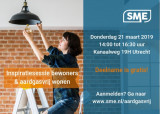
Ben je als gemeenteambtenaar betrokken bij de wijkgerichte aanpak voor aardgasvrije wijken?
Dan nodigen we je graag uit voor onze inspiratiesessie over het voorbereiden van bewoners op aardgasvrij wonen. We praten je bij over de laatste ontwikkelingen in de warmtetransitie. Schuif op donderdagmiddag 21 maart 2019 van 14.00 tot 16.30 uur aan in Utrecht! Deelname is gratis.
Uit de sessie neem je concrete kennis over de wijkgerichte aanpak naar een aardgasvrije toekomst mee naar huis. En je krijgt inspirerende voorbeelden van laagdrempelige manieren om bewoners daarop voor te bereiden en te informeren.
- Senior adviseur Bregje van den Brand vertelt je vanuit haar eigen ervaringen hoe je als gemeente de juiste stakeholders en bewoners betrekt bij de warmtetransitie. En hoe je als gemeente nu al kunt beginnen met effectief beleid om bewoners voor te bereiden op aardgasvrij wonen. Welke rol heeft de gemeente? Wanneer zijn bewoners eigenlijk ‘aardgasvrijklaar’?
- Senior adviseur Imke Tegels laat je zien hoe een laagdrempelige workshop voor bewoners eruitziet aan de hand van enkele onderdelen uit haar energiebesparingsworkshops.
- We wisselen (eventuele) eigen ervaringen met het betrekken van bewoners bij de energietransitie naar aardgasvrij. Waar sta je in het proces naar aardgasvrije wijken? Ben je al begonnen en loop je tegen dingen aan in communicatie met bewoners? Of is voor jou de vraag ‘hoe begin ik?’ in dit stadium belangrijk? Je krijgt tips waar je mee aan de slag kunt.
Na afloop staat er een borrel klaar en kun je verder praten met collega’s uit andere gemeenten. De sessie vindt plaats op het kantoor van SME: Kanaalweg 19H in Utrecht.
Er is plek voor maximaal 12 deelnemers. Maximaal twee personen per gemeente.
Looking back on 101 Amsterdam Smart City delegations hosted in 2018!
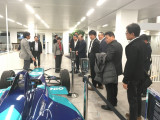
ASC receives a lot of requests from international delegation interested in exchanging experiences and exploring collaboration opportunities. In this post we look back on 101 delegations we hosted from more than 20 countries in 2018.
What kind of groups visit Amsterdam Smart City and why?
Nearly half (47%) of delegations that visit Amsterdam Smart City are governmental groups and another 23% are academic. The rest are private sector (15%), press (8%) and public-private groups (5%). Most groups visit in hopes of meeting with relevant experts and stakeholders and learning from best practices. Another reason for visiting is to connect to innovative organizations and startups and to explore possibilities for collaboration. About 25% of delegations came from South Korea where the concept of smart or “ubiquitous” city originates. Other delegations come most often from USA, Japan, Germany, Finland, Denmark, Taiwan and UK.
Here are the top 10 things delegations tell us they find most inspiring about visiting Amsterdam:
1. Innovative area development — Amsterdam has a long history of innovative area development, with the Canal Belt from the 1600’s as one of the world’s most famous master plans. This culture of innovation is thriving in Amsterdam, with districts such as Circular Buiksloterham and climate-neutral Houthavens providing inspiration and best practices for master planning new city districts or transforming post-industrial areas.
2. Smart and innovative mobility solutions – While most are aware of Amsterdam’s position as a leading cycling city, many are surprised to discover Amsterdam is also a leader in electric and shared mobility. This can be seen in the form of Tesla taxis and electric buses across the city, as well as more than 2,000 electric vehicle-charging stations installed in public space. What is often most inspiring for groups is to learn that these approaches are not at all new - Amsterdam launched its first electric car-sharing system in 1974!
3. Johan Cruijff Innovation Area – Home of Ajax football club, Johan Cruijff Arena is one of the most innovative stadiums in the world. Instead of depending on diesel, the Arena constructed a micro-grid which provides uninterrupted power supply during events. It uses second life Nissan-fuel cells which store the renewable energy generated by its PV panels. The Arena is also a testing ground for innovative mobility, digital connectivity, crowd management and fan experience projects.
4. De Ceuvel Living Lab — A former shipyard now converted into a small office park for creative companies, De Ceuvel launched Jouliette, Amsterdam’s first block chain project for energy. In collaboration with CITI-XL, De Ceuvel also makes it possible for international delegations to test their technologies. Lora-enabled smart water meters from South Korea are currently being tested on the site.
5. Circl Pavilion — The Dutch government has laid out an ambitious plan to transition to a fully circular economy by 2050. Circl, a new circular building in Amsterdam’s Zuidas district offers some insight into achieve this goal. An initiative of ABN AMRO, the pavilion showcases new circular construction methods and business models. Almost all of the materials used in creating Circl are second-hand or are easily disassembled for reuse. For many delegations, Circl inspires and stimulates discussion about the transition to a circular economy.
6. Amsterdam is an ethical and responsible digital city — Digital connectivity and digital transformation are “buzz-terms” of interest for most visiting delegations. Many groups are initially disappointed to find out that Amsterdam is not the most advanced city when it comes to connected sensors, cameras and IoT devices. Instead, the focus is on the principles and values necessary to become an ethical and responsible digital city. This is best illustrated in the ‘Tada – data disclosed’ manifesto where six principles were spelled out for ensuring Amsterdam’s transition to a digital society which benefits everyone. Amsterdam also teamed up with Barcelona and New York to launch the Cities Coalition for Digital Rights, laying out five key points regarding universal Internet access; privacy, data protections and security; transparency and accountability; participatory democracy; and open and ethical digital standards. Other cities are welcome to join!
7. Vibrant startups and innovation ecosystems — Visits to hubs such as B Amsterdam, TQ and Startup Village make it possible to experience Amsterdam’s thriving startup ecosystem first hand. But, what’s most inspiring for professionals working with startups on a daily basis is Amsterdam’s approach to inviting startups to help solve urban challenges through the city’s Startup in Residence program. Now in its fourth year, the program has expanded to other Dutch municipalities and ministries.
8. Amsterdam’s approach to open engagement and dialogue — Among the highlights for many delegations is the opportunity to join open events like those hosted by Pakhuis de Zwijger, Waag Society or DataLab, where various stakeholders come together to discuss and co-create solutions to urban challenges. All of this in-person interaction is matched with the opportunity to engage online via various community engagement, participatory budgeting, and crowd funding platforms such as Voor je Buurt, West Begroot, Gebied Online, Argu and Amsterdam Smart City’s very own platform of over 6,000 members!
9. Abundance of bottom-up and community initiatives – Amsterdam’s rich ecosystem of bottom-up and community lead initiatives is according to many experts the very reason why Amsterdam was named Europe’s Innovation Capital (iCapital) in 2016. Delegations are often inspired by these initiatives, be it neighbourhood lead worm-composting or off-grid urban-farm cafes. The Amsterdammers, Make your City contest and the We Make The City innovation festival are great examples of Amsterdam's commitment to further strengthening bottom-up initiatives.
10. Innovating through public-private-partnerships (PPP’s) – More than any specific project or technology, delegations are most impressed by Amsterdam’s approach to innovation through public-private partnership and community platforms. As neither a governmental organization nor a company, Amsterdam Smart City brings together public private partners and stakeholders motivated to work on the city of the future. Governmental delegations especially divulge that they struggle to find private sector partners who are committed to collaborating, and they are curious about Amsterdam's "secrets" to working in this way.
***Are you involved in an innovative project in Amsterdam or the metropolitan Area which you would like to showcase to national and international delegations in 2019?
Share your ideas and suggestions in the comments section below or send an email to cornelia@amsterdamsmartcity.com.***
How to involve citizens in energy transition
Recently, the city of Amsterdam widely distributed a booklet called 'Amsterdam klimaatneutraal 2050'. It is the starting point of a citywide consultation process. In this short blog post (in Dutch), I explain why this booklet might feed feelings of uncertainty in the first place instead of involving citizens in the transition process.
European Clean Energy & Mobility Conference

Creating synergies from clean energy and e-mobility through innovative policies, technology and implementation.
European cities are moving massively into electric mobility. Renewable energy in the city is also growing fast, mostly solar as the most viable clean source of energy in densely populated areas. This conference addresses the need for integrating e-mobility and renewables, facilitated by ICT and how these developments can reinforce benefits instead of creating problems for each other.
Large scale integration of e-mobility and renewables in and around the city is a challenge. Growth in solar energy creates an energy production peak in the early afternoon, which mismatches with the energy demand peaks in the morning and evening. This creates problems for the electricity grid, which will aggravate rapidly if we do not act now. Integrated zero emission mobility and clean energy, smart storage and flexible demand will play a large role in tackling these issues.
Where the EV ENERGY project is focused at good practice and policies to encourage this integration in cities, the CleanMobilEnergy project develops and implements a Europe-wide applicable Energy Management System, with a focus on optimising multiple energy generation, storage and consumption devices within the city. Together with both projects, this conference aims to boost large-scale integration of clean energy, clean mobility and flexible demand and storage.
This conference brings together outstanding examples from Europe, focusing on:
■ Large scale e-mobility parking and energy exchange experiences
■ Smart EV-charging in the city to ‘un-stress’ the grid
■ Energy Management Systems in Europe
■ Tools for energy planning
■ Developing viable business models
The example projects demonstrate the need for an ‘energy systems’ approach in which the energy and mobility sector can produce synergies and reinforce each other.
Check out the current programme here: https://resourcefully.nl/wp-content/uploads/2019/04/Clean-Energy-Mobility-Conference-Programme-5th-June.pdf
We look forward to your participation in this conference!
How to align smart city policies with social and environmental sustainability goals

The Charter for a Humane City has been written with Amsterdam in mind. 'Smart Amsterdam' has never been focused on narrow technological objectives.
If you like, you can download the Charter for a Humane City here (English version):
https://www.dropbox.com/s/ji37e4paxjnu60z/2018%2011%2025%20Stedelijke%20uitdagingen%20Charter%20Eng.docx?dl=0
De Nederlandse versie: Handvest voor een humane stad kun je hier downloaden: https://www.dropbox.com/s/mgy4740q03k9ksf/2018%2011%2025%20Stedelijke%20uitdagingen%20Charter.pdf?dl=0
New Democracy #34: Maatschappelijk Leiderschap
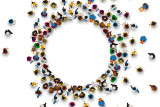
Hoe moeten leiders zich verhouden tot de macht van de disruptieve burger?
Onze samenlevingen, instituten en het sociaal weefsel zijn in de eerste stadia van de Digital Civil Revolution, zoals Steven de Waal analyseert in zijn nieuwste boek ‘Civil Leadership as the Future of Leadership. Harnessing the disruptive power of citizens’. Hij schetst hoe de technologie die markten heeft ontwricht, ook leidt tot een nieuwe en groeiende macht van burgers, en tegelijkertijd een ontwrichtende werking heeft op politiek, democratie en publieke dienstverlening. Het leidt onder andere tot een publieke opinie die werkelijk van het publiek is en tot een permanente publieke tribune. Een speciaal soort leiderschap is nodig om deze nieuwe burgermacht te omarmen, te gebruiken en bij te sturen: maatschappelijk leiderschap. Hoe kunnen overheid, politiek en bestuurders het best reageren op deze nieuwe publieke arena?
Met in dit programma onder anderen:
Steven de Waal | Oprichter en voorzitter van Public Space Foundation
Rinda den Besten | Voorzitter PO Raad
Reinier van Zutphen | Nationale Ombudsman
Michiel van den Ingh | Co-founder Argu & Participatie expert
Greet Prins | Voorzitter Raad van Bestuur Philadelphia
How much sustainable electricity can we produce?
The recent Energy agreement is too much focused on the reduction of CO2 (very important indeed). It pays too little attention to the possible sources of energy, available in the future. In this post (in Dutch), I make a couple of calculations that indicate the toughness of the job producing sufficient electricity in 2050 to attain the 1,5%-target by deploying sun and wind energy only. I would be very happy if somebody would verify these calculations.
Stay up to date
Get notified about new updates, opportunities or events that match your interests.

